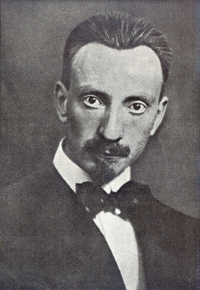A Quote by George Bernard Shaw
The most revolutionary invention of the Nineteenth Century was the artificial sterilization of marriage.
Related Quotes
Given that the nineteenth century was the century of Socialism, of Liberalism, and of Democracy, it does not necessarily follow that the twentieth century must also be a century of Socialism, Liberalism and Democracy: political doctrines pass, but humanity remains, and it may rather be expected that this will be a century of authority ... a century of Fascism. For if the nineteenth century was a century of individualism it may be expected that this will be the century of collectivism and hence the century of the State.
Most of what I read is for reviewing purposes or related to something I want to write about. It's slightly utilitarian. I definitely miss that sense of being a disinterested reader who's reading purely for the pleasure of imagining his way into emotional situations and vividly realized scenes in nineteenth-century France or late nineteenth-century Russia.
Marriage is an ongoing, centuries-long social experiment that is mostly controlled by the individuals in the relationships who insist on determining what the relationship terms are going to be. And that's why the terms of marriage change with every century and decade. We're shaping it from the inside. Marriage endures because it evolves. Obviously it does. None of us would accept marriage on its 13th century terms, not even the most conservative people...
Plenty of the women who were single in the nineteenth century wrote about their desire to evade marriage. Marriage was scary in a lot of ways. It often involved having a lot of kids, losing your autonomy, being in service to a husband and children who were often born at an unremitting pace without the benefit of modern medicine.
The nineteenth century was the last moment in history when a relatively educated layperson could follow what was going on in the world of science and invention to a wide degree. Also, there were no "professionals". This was a time when amateur explorers, naturalists and enthusiasts were are still making major contributions to progress.
It seems fair to say that while the moral standards of the nineteenth century persisted almost unchanged into the twentieth, moral practices changed sharply, and that though the standards of the nineteenth century persisted the institutions that had sustained them and the sanctions that had enforced them lost influence and authority.
A strange effect of marriage, such as the nineteenth century has made it! The boredom of married life inevitably destroys love, when love has preceded marriage. And yet, as a philosopher has observed, it speedily brings about, among people who are rich enough not to have to work, an intense boredom with all quiet forms of enjoyment. And it is only dried up hearts, among women, that it does not predispose to love.






































